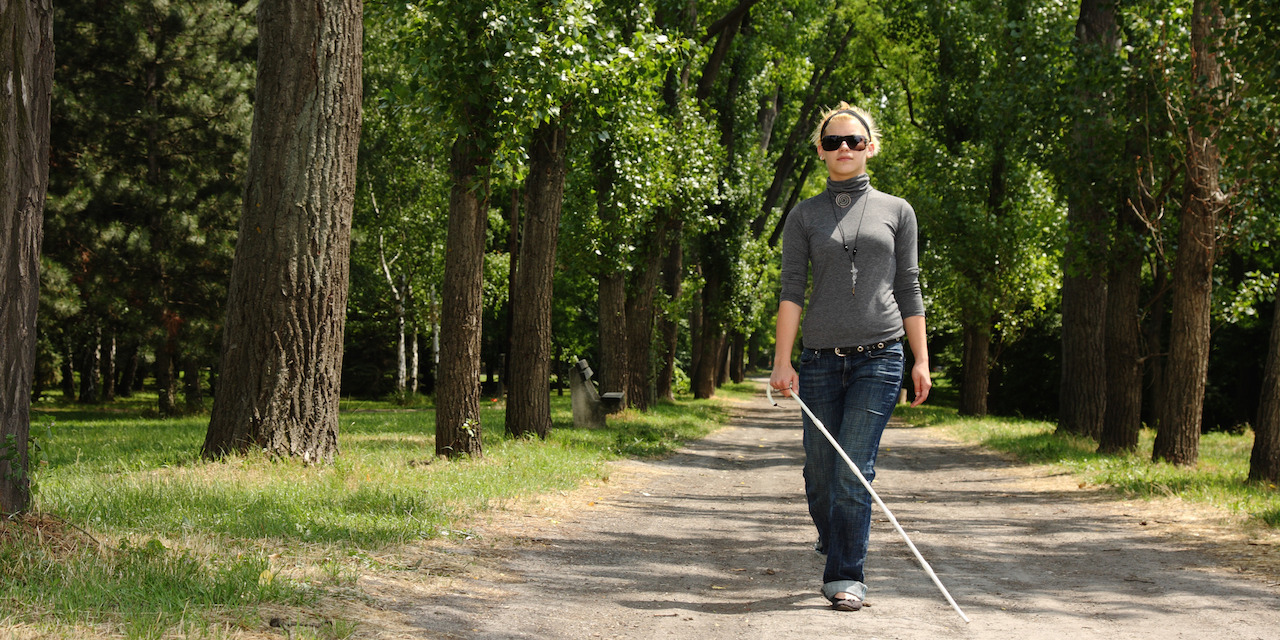Blind Experiment Johnny Sins - Unpacking Anonymous Professional Insights
Imagine a place where people can truly speak their minds about work, without worrying about who might be listening. It's a bit like a big, ongoing social study, where the main variable is whether folks feel safe enough to share what they really think. This whole idea of open, yet private, conversations about careers and companies has, in a way, become a fascinating real-world "blind experiment" in how transparency can truly shape our professional lives.
This unique approach to sharing professional experiences has started to change how people get advice, how they talk about their jobs, and even how they connect with others in their field. You see, when people can offer insights and opinions without their names attached, it creates a very different kind of discussion, one that is, in some respects, much more direct and unvarnished than what you might find elsewhere. It’s a space where the usual filters just aren't there.
The core concept behind this setup is to build a healthier work environment by letting real stories come out into the open. It’s about creating a sustainable way for organizations to truly understand what's happening inside their walls, by fostering communication that's completely clear and without hidden agendas. This ongoing "blind experiment" really focuses on bringing those hidden truths to light, for everyone's benefit, you know?
Table of Contents
- The Power of Anonymous Professional Sharing
- How Does Anonymity Shape Professional Conversations – A Blind Experiment in Openness?
- Uncovering Workplace Realities
- What Role Do Private Channels Play in the Blind Experiment?
- Career Paths and Industry Insights
- Can Anonymous Feedback Influence Perceptions – The Johnny Sins Connection?
- The Value of Collective Wisdom
- Why Does Transparent Communication Matter – The Blind Experiment's Core?
The Power of Anonymous Professional Sharing
At its heart, this whole idea centers on giving people a spot to truly speak their minds about work. It's a place where you can find out about different job paths, get into lively discussions, and even make connections with others who do similar things. The aim is pretty straightforward: to help create a lasting, good work culture through communication that is completely clear and open. Basically, it’s about making sure everyone feels heard, which is, you know, a pretty big deal.
This kind of setup lets you look at honest thoughts about companies, all without knowing who said them. It gives you very clear looks into what a workplace is truly like, how much people get paid, what benefits are offered, and a whole lot more. It’s like getting an unfiltered view, which can be incredibly helpful when you're trying to figure out where to work or what to expect. There's just so much to learn when people feel comfortable enough to share their actual experiences, and this platform makes that possible, in a way.
This particular community is a place many people trust, with millions of working folks from different companies and fields coming together to have real, frank conversations. They talk about everything from the good parts of their jobs to the things that could use some work. It’s a spot where you can hear the truth, straight from the people living it every day, and that, arguably, makes a real difference in how we think about work environments. It's truly a unique kind of gathering place for professional insights.
How Does Anonymity Shape Professional Conversations – A Blind Experiment in Openness?
Think about how different a conversation becomes when you don't know who is saying what. When people can share their thoughts and feelings about their jobs or their companies without their names attached, it often means they're much more willing to be truly open. This is, in essence, a big part of the "blind experiment" that plays out every day on platforms like this. It’s an ongoing test of how much more candid people become when the usual pressures of identity are taken away, and it's quite fascinating to observe, really.
The Nature of the Blind Experiment
This setup allows for a unique kind of social study, where the focus is on the content of the message, not the messenger. It means that when someone talks about their company's culture, or offers advice on a tricky situation, the information stands on its own merits. This is pretty important because it helps cut through any biases that might come from knowing someone's position or background. You get the raw data, so to speak, which can be incredibly powerful for getting a true sense of things, and that's a very big part of what makes this whole "blind experiment" so compelling.
When you're able to see what people honestly think about their workplaces, from salary details to daily frustrations, it creates a level of transparency that's quite rare. This open sharing helps people make better choices for their own careers, and it also puts a spotlight on what companies are doing well, and where they might need to improve. It’s a constant stream of real-world feedback, which, you know, is basically gold for anyone trying to understand the actual conditions of different work settings. It's a continuous process of discovery.
Uncovering Workplace Realities
This kind of community really helps people compare what they earn with others across the job market. You can find very thorough information about pay and other financial details, giving you a clear picture of what people are making in different fields and for various job roles. It’s about making sure everyone has a fair chance to know their worth, which, as a matter of fact, can be a huge confidence booster when you're looking for a new job or asking for a raise. It truly levels the playing field, in a way, by providing honest data.
The information shared here goes beyond just numbers; it paints a picture of what it's like to work at specific places. People talk about their daily tasks, the atmosphere in the office, and how management treats its team members. This kind of direct feedback is incredibly valuable because it helps you get a feel for a company before you even apply. It's like getting an inside scoop, allowing you to peek behind the curtain and see what the real experience is like, which is pretty useful, if you ask me.
For instance, you might come across discussions about a big tech company like Microsoft. People share their experiences, like the talk about a two-year ban on rehiring, which some found quite surprising and even a little unsettling. These sorts of conversations reveal the human side of corporate decisions, showing how policies truly affect the people who work there. It’s a place where you can see the genuine reactions and concerns of employees, offering a perspective you wouldn't find in official company statements, obviously.
What Role Do Private Channels Play in the Blind Experiment?
Beyond the wide-open discussions, this platform also offers something pretty special: private groups just for people who work at the same company. These channels are like a secluded room where employees can talk amongst themselves, away from the general public. It's a space where they can share very specific thoughts and concerns that might only be relevant to their own workplace. So, it's almost like having an internal, yet completely anonymous, forum for your company, which is quite unique.
Inside the Blind Experiment's Private Spaces
These private areas really deepen the ongoing "blind experiment" by allowing for even more focused and sensitive discussions. For example, you might see people talking about potential changes in their department, like speculations about a big reorganization happening in certain teams. These are the kinds of conversations that often happen behind closed doors in real life, but here, they can happen with everyone feeling safe to contribute their thoughts without fear of reprisal. It’s a very powerful tool for internal communication, really.
The ability to have these kinds of private, anonymous chats can be incredibly helpful for employees. They can ask questions, share frustrations, or even celebrate successes with colleagues who truly understand their specific situation. It helps build a sense of connection and shared experience within a company, even if people don't know each other's actual names. It's a way for people to feel less alone in their work journeys, and that, you know, is a pretty good thing for morale and understanding.
Career Paths and Industry Insights
This platform is a really helpful spot for anyone thinking about their next career move, especially if you're looking at big companies. You can find lots of information about different job paths and get insights into places like Microsoft. It gives you access to practical advice, people's thoughts on various roles, details about pay, and even tips for interviews. All of this is put together to help you feel more confident and prepared as you go through your own working life, which is, like, super useful.
For instance, you might see listings for great opportunities, like a permanent job opening for an AI Engineer with three or more years of experience at Kakao Mobility in Gyeonggi Seongnam-si Bundang-gu. Or maybe a permanent role for someone with three to ten years of experience in government support projects and investor relations at Colosseum Corporation. These examples show how the platform connects people with actual job openings, alongside all the advice and insights, offering a full picture of the job market, you know?
The discussions on the platform often touch on what it's truly like to work in different roles and industries. People share their day-to-day experiences, what challenges they face, and what they enjoy most about their jobs. This kind of firsthand account is incredibly valuable for someone who is trying to decide if a certain career path is right for them. It's like getting advice from thousands of mentors, all willing to share their genuine thoughts, and that's something you can't really put a price on, honestly.
Can Anonymous Feedback Influence Perceptions – The Johnny Sins Connection?
It's worth thinking about how anonymous discussions, like those on this platform, might shape the way we view anyone, even people who are widely known. This is a very interesting part of the ongoing "blind experiment." When people can talk openly about professional matters, or even general perceptions, without their names attached, it can sometimes lead to perspectives that are quite different from what you might hear in public forums. It makes you wonder how public figures, or anyone with a public presence, might be perceived if their professional lives were subject to this kind of unvarnished, anonymous discussion.
Considering the Johnny Sins Aspect in a Blind Experiment
Let's consider a hypothetical situation, using a name like Johnny Sins, someone who is, for instance, very well-known in a particular field, even if that field isn't traditional corporate work. How might discussions about his professional endeavors, or even the broader implications of his public persona, unfold in a truly anonymous setting where people are encouraged to speak without reservation? This isn't about him being on the platform, but rather about the *principle* of how anonymity can influence conversations about *any* recognized individual. The "blind experiment" here explores how the absence of personal identity can change the texture and content of discourse, allowing for different kinds of observations to surface about anyone, including those in the public eye, you know?
The core of this thought exercise is about the nature of perception itself. If all the usual filters and social pressures are removed, what kinds of things would people say about someone's professional reputation, or even their overall impact? It highlights how powerful anonymity can be in fostering a different kind of dialogue, one that might reveal less polished, more direct opinions. This is the essence of the "blind experiment" – understanding the raw, unfiltered human response when the usual rules of public discourse are temporarily suspended. It's a way to see what people truly think, without any holding back, which is, in fact, quite revealing.
The Value of Collective Wisdom
This community brings together a truly massive number of working people, over twelve million professionals from all sorts of companies and different kinds of jobs. They come here to have real, honest talks about their experiences. This huge gathering of minds means there's a vast pool of shared knowledge and insights available. It’s like having a giant brain trust where everyone contributes their piece of the puzzle, making the overall picture much clearer for everyone involved, and that's pretty amazing, actually.
When so many people share their thoughts and experiences, it creates a very rich source of information. You can learn about what it’s like to work at a specific company, what challenges people face in certain roles, and even get a sense of future trends in different industries. This collective intelligence is incredibly valuable because it’s based on real-world experiences, not just theories or official statements. It’s a living, breathing database of professional insights, constantly updated by the people who are living it, so, you know, it’s quite dynamic.
The strength of this platform really comes from the sheer volume of genuine conversations happening every single day. It’s a place where you can find out about things that are truly affecting people in their jobs, whether it’s about company policies, career growth, or just the daily grind. This shared experience helps people feel more connected and better informed, making the professional world a little less mysterious and a lot more transparent. It’s a powerful testament to what can happen when people feel safe enough to truly open up, which is, in some respects, a very positive development.
Why Does Transparent Communication Matter – The Blind Experiment's Core?
The whole point of this kind of setup, this ongoing "blind experiment," is to show just how important truly clear and open communication is in the workplace. When people can talk honestly about what’s going on, it helps build a much stronger and healthier work environment. It’s about creating a culture where feedback is valued, and where everyone feels like they have a voice, even if that voice is anonymous. This fundamental belief in open dialogue is what drives the entire system, really.
The Enduring Value of the Blind Experiment
The lasting worth of this "blind experiment" comes from its ability to continuously bring important issues to light. It helps companies understand where they excel and where they need to make changes, all based on the genuine experiences of their own people. For individuals, it offers a way to get unbiased advice and to see what’s truly happening across the professional landscape. It’s a constant source of real-world insights, proving that when communication is transparent, everyone benefits, and that’s a pretty powerful idea, you know?
Ultimately, this approach to sharing professional insights creates a more informed and empowered workforce. It helps people make better decisions about their careers, understand their value, and connect with others who share similar professional paths. By providing a safe space for honest conversations, it encourages a level of transparency that is, in fact, quite rare in the professional world. This commitment to open, yet anonymous, dialogue is what makes this "blind experiment" so impactful for so many working individuals.
- Ashley Mulheron
- Glinda Lego Minifigure
- Melinda Delgado
- Uniform Connection In Lincoln Ne
- Total Wine More Vancouver Wa

Tips for Interacting With Blind People | The Mighty

While 10 15 of the blind population can t see anything at all most of

Blind Man Walking Stick